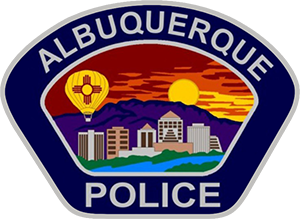Q: Do you have a tattoo policy?
A: Yes, tattoos are permissible to be shown in public, while in the duty uniform, on the following areas:
Tattoos must be preapproved for their appropriateness by the Chain of Command before being displayed while in the duty uniform.
Q: Do I get paid while in the police academy?
A: Yes. You start earning salary and benefits the first day of the academy.
Q: How do I get a ride along?
A: Go to https://www.oneabqvolunteers.com/need/detail/?need_id=689933 and complete the “volunteer form” to request a ride along.
Q: How long does the selection process usually take?
A: It can take anywhere from 3 to 9 months, but it varies.
Q: How long do I have to work patrol?
A: You are on probation for one year from the date of graduation from the academy. Depending on what specialized unit you are interested in, you may have to work a minimum of two years non-probationary (investigative units) or four years non-probationary (tactical units).
Q: If I have a background investigation done with another agency, or have a top secret clearance in the military, will APD still do a background check?
A: Yes, APD’s Background Unit will conduct its own thorough background investigation on everyone who makes it through weekend testing.
Q: How many trips will out of state applicants need to make to complete the selection process?
A: A minimum of two trips are required. The first trip encompasses weekend testing. The second trip encompasses the polygraph, psychological interview and consists of the chief’s selection committee. The medical exam will be completed once the out of state applicant moves to Albuquerque to begin the police academy.
Q: How long is the police academy?
A: The police academy is approximately 26 weeks.
Q: Is it a live in academy?
A: No, the academy is not a live in academy, so you are allowed to go home at the end of every day. Cadets generally work day shift; however some swing shifts are required depending on the phase of training.
Q: Where do most applicants get dropped in the process?
A: Lying, omitting or minimizing facts is where most applicants get dropped. Usually, the act in and of itself would not disqualify the applicant, but because an integrity violation occurs, the applicant is disqualified.
Q: Do I have to be a United States Citizen?
A: Yes, you must be a United States Citizen
Q: What if I cannot locate my high school diploma?
A: A letter from your high school on official school letter head with the school seal stating you did in fact attend and your graduation date will suffice.
Q: What if I cannot locate all the documents required prior to my testing weekend?
A: If we ask for it, we need it. Bring what you have. For each document you are missing, attach a sheet of paper that says what it is you are missing. Your background file will not be worked until all documents are provided.
Q: Are you accepting lateral transfers?
A: Yes. Please see the “becoming an officer” tab for qualifications.
Q: Can I attend college and be a Police Service Aide at the same time?
A: You can, however it will be extremely difficult. The Police Service Aide position is full time, so your class schedule will need to be organized around your work schedule.
Q: How can I submit an application?
A: Please click the “Apply Now” tab from the home page.
Q: What is the age limit?
A: There is no upper age limit, as long as you can perform the physical fitness requirements.
Q: Will I have to purchase my own gear or will the department pay for it?
A: You will need to buy your uniforms, shoes and accessories. The department will provide a gun belt and firearm.
Q: Do I need any college credits to be eligible to test as a police cadet?
A: No.
Q: What happens after I graduate from the police academy?
A: You are on probation for the first year. For the first four months of that probation (at minimum) you are on on-the-job training (OJT). Each month you are with a different field training officer. OJT is a practical application of what you learned in the police academy.
Q: What is a Notary, and how do I find one?
A: A Notary Public is an official of integrity appointed by state government to serve the public as an impartial witness in performing a variety of official fraud-deterrent acts related to the signing of important documents. Notaries can often be found at your local bank or by searching online.
Q: How do I get proof of my Selective Service Registration?
A: This link should provide you information to obtain your proof of registration: https://www.sss.gov/verify/

